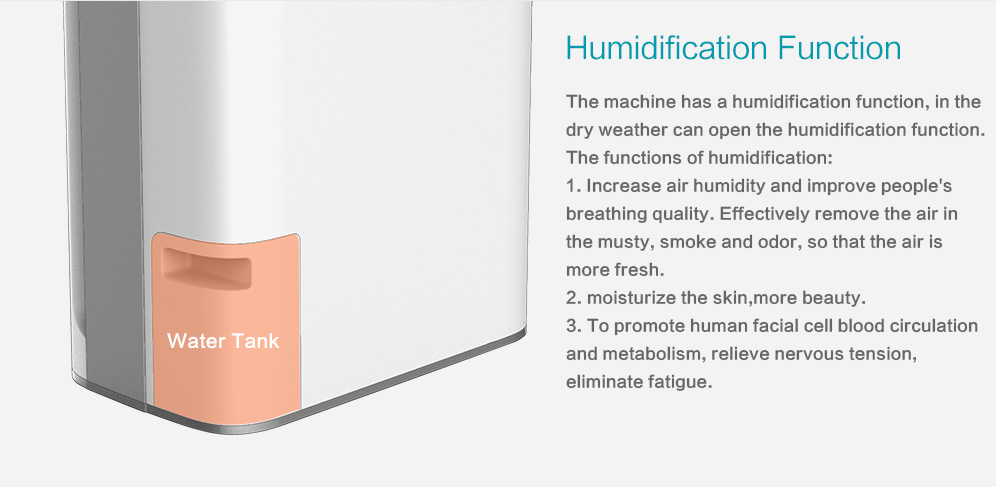Air purifiers and health sciences: do you have data?

What is one of the most popular gifts in China? Maybe you can give the gift of continuing dedication: an indoor air purifier. Of course, sales in China have been very active since last year. I think that’s a good thing. Many independent tests, including my own, have documented that high-quality air purifiers can significantly increase indoor PM 2.5 by more than 80%. But is there any good data to prove that it actually makes you healthy? Of course, it seems logical that reducing pollution exposure would reduce harmful health effects. However, the medical history is full of common sense and traditional stories – which later proved to be worthless or harmful – bloody or more modern multivitamin traditions. Most people who read this article take multivitamins every day, but it is considered to be “healthier”, but the best evidence is that they are worthless, suggesting that it may be harmful. Is it the same as an air purifier?
Theoretically and experimentally, a good detergent should increase the level of indoor pollution by more than 80%. The 80% reduction is also used in the Clean Air Supply Rate (CADR) test, which is widely cited by the Association of Private Electrical Appliance Manufacturers (AHAM) in the air purifier comparison table. So suppose you have installed the best purifier in the living room. I feel very safe and comfortable. But how much time do you have in that filtered room? Or the purifier may be too small for the size of the room, the filter may be out of date, the fan may be too slow, or the window may open. Even though this often cited ADR test is only a 20-minute laboratory test – what does it look like in the real world? I want to take this dialogue to a new level. We seek to prove that using these machines will improve your health. I showed patients and readers a study that tracked people for months or years, compared them with controls that did not use air purifiers, and measured their health and lung disease, cancer and mortality. Do you have such research? 258035c025c59745eaab068434d9d6c6
I searched the Pubmed Science database to find the best research. I was disappointed, but it’s not surprising that I found very few powerful data. Research projects designed in this way are very difficult and expensive. However, there have been some attempts, especially considering the use of HEPA filters to help children with asthma. One was a systematic review published in 2002, which found that air filters helped improve asthma symptoms – but with little impact, it was difficult to assess the variations in decision-making between studies. A recently well-designed study, published in Pediatrics in 2011, examined 200 asthmatic patients exposed to secondhand smoke at home. Half of the children were genuine HEPA purifiers, and the rest were given a fake purifier in the bedroom. A year later, children in the HEPA group were less likely to see a doctor because of asthma attacks. This may – not ultimately – be due to a 25% reduction in PM 2.5 for housing.
Other studies, including an interesting 2008 study, tracked children with pet allergies that had been recorded for a year, and recorded lung function and blood markers, mainly for allergies. A year later, those who used HEPA air purifiers did not find significant differences in lung function, the use of allergic drugs or allergic blood markers. Another study before 1990 was even more impressive, showing not only a 70% reduction in indoor PM 0.3 but also an improvement in allergic symptoms.
These all show health benefits, but they still dance around what I want to know in China and in developing countries. In the United States, most air cleaners are marketed and tested for allergies and asthma. However, in developing countries, air pollution is much more serious, so health risks are even more serious. We are concerned about pollution deaths, heart and lung diseases, and the long-term risk of cancer. The studies I have just mentioned do not answer more in-depth questions. Can long-term use of indoor air purifiers help prevent death, heart and lung diseases, and cancer?
The best research I found was published in January 2013 in indoor air. It’s a very well-designed, complex type of study, a randomized, double-blind, cross-over study using air or placebo cleaners for more than three weeks in 20 families. Their main goal in Canada’s remote Indigenous community is to assess whether air purifiers can improve cardiovascular health.
Contact us for more products and discounted prices
Helen:
+86 13922346046
info@olansiglobal.com
https://www.olansiglobal.com